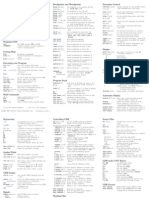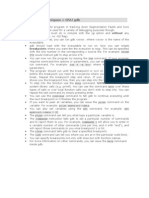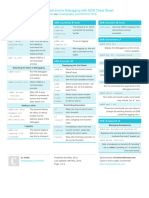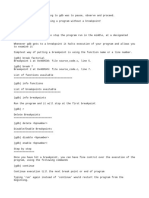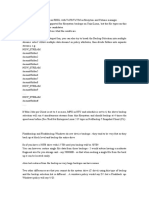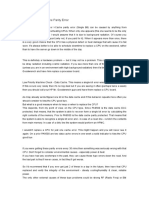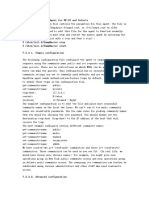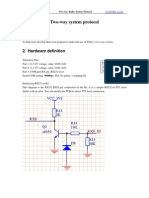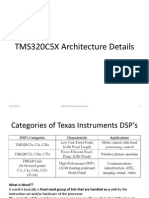0% found this document useful (0 votes)
319 views14 pagesGDB Vs DBX
The document compares the invocation, commands, and functionality of the GNU debugger (GDB) and the Sun debugger (DBX). It notes key differences such as DBX requiring the program file to debug live processes and core files, the availability of auto-completion and command repetition, support for different debugging information formats, and differences in setting breakpoints and debugging multithreaded and multiprocess programs.
Uploaded by
liuylCopyright
© © All Rights Reserved
We take content rights seriously. If you suspect this is your content, claim it here.
Available Formats
Download as DOC, PDF, TXT or read online on Scribd
0% found this document useful (0 votes)
319 views14 pagesGDB Vs DBX
The document compares the invocation, commands, and functionality of the GNU debugger (GDB) and the Sun debugger (DBX). It notes key differences such as DBX requiring the program file to debug live processes and core files, the availability of auto-completion and command repetition, support for different debugging information formats, and differences in setting breakpoints and debugging multithreaded and multiprocess programs.
Uploaded by
liuylCopyright
© © All Rights Reserved
We take content rights seriously. If you suspect this is your content, claim it here.
Available Formats
Download as DOC, PDF, TXT or read online on Scribd
/ 14

